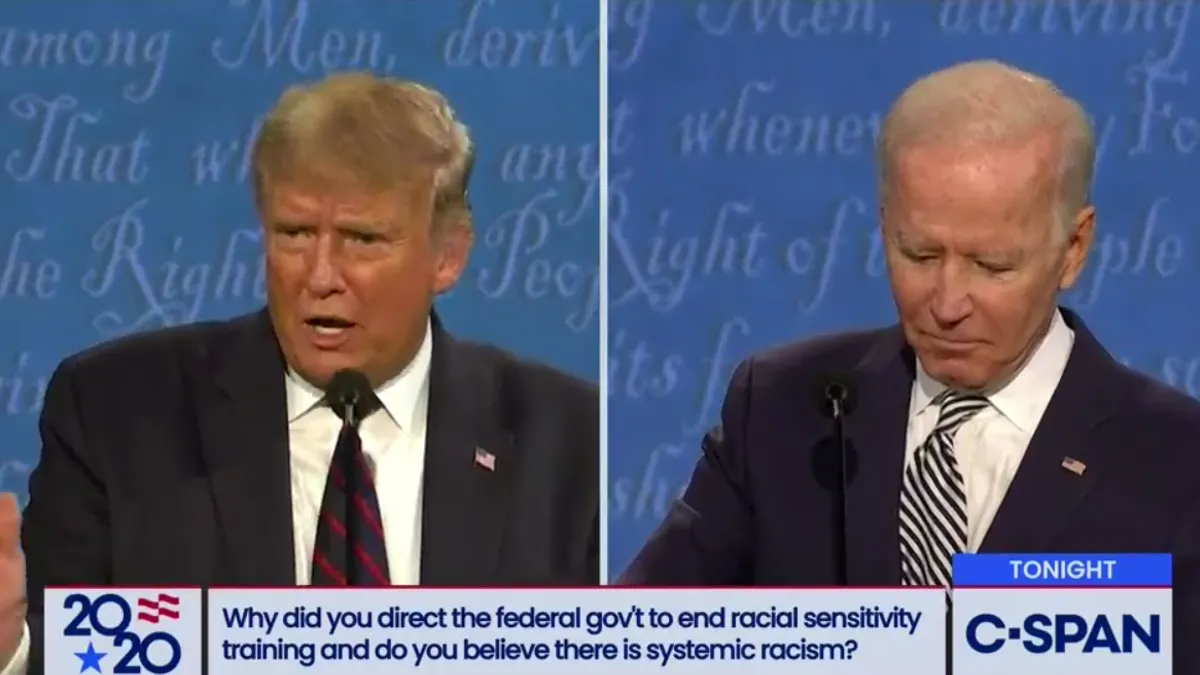Dive Brief:
- President Donald Trump halted certain anti-racism and anti-bias training in the federal government "because it’s racist" and "a lot of people were complaining that they were asked to do things that were absolutely insane" he said Sept. 29 during the first presidential debate in the lead up to the 2020 election. Trump said the training represents "a radical revolution that was taking place in our military, in our schools, all over the place." Later in the debate, he avoided specifically condemning right-wing extremist groups including White supremacists.
- Trump continued: "We were paying people hundreds of thousands of dollars to teach very bad ideas and frankly, very sick ideas. [...] They were teaching people to hate our country and I’m not going to do that. [...] They were teaching people that our country is a horrible place. It’s a racist place. And they were teaching people to hate our country."
- Democratic nominee Joe Biden disagreed, saying "the fact is that there is racial insensitivity. People have to be made aware of what other people feel like, what insults them, what is demeaning to them. It’s important people know. Many people don’t want to hurt other people’s feelings, but it makes a big difference. It makes a gigantic difference in the way a child is able to grow up and have a sense of self-esteem."
Dive Insight:
The administration’s initial declaration against training that includes critical race theory or refers to White privilege came in a Sept. 4 memo from White House Office of Management and Budget (OMB) Director Russell Vought.
In the memo, Vought called such training an effort to get "government officials to believe divisive, anti-American propaganda" and that Trump "has directed me to ensure that Federal agencies cease and desist from using taxpayer dollars to fund these divisive, un-American propaganda training sessions."
In a Sept. 22 Executive Order, Trump expanded the scope of this mandate by including federal contractors and grant recipients among the groups barred from offering this kind of training.
Interest and enrollment in diversity training is on the rise in the private sector, however, providers report. As social justice protests continue and some employers work to address systemic racism, LinkedIn, Udemy, Skillsoft and ExecOnline have reported a notable increase in participation and investment in training for diversity, equity and inclusion.












